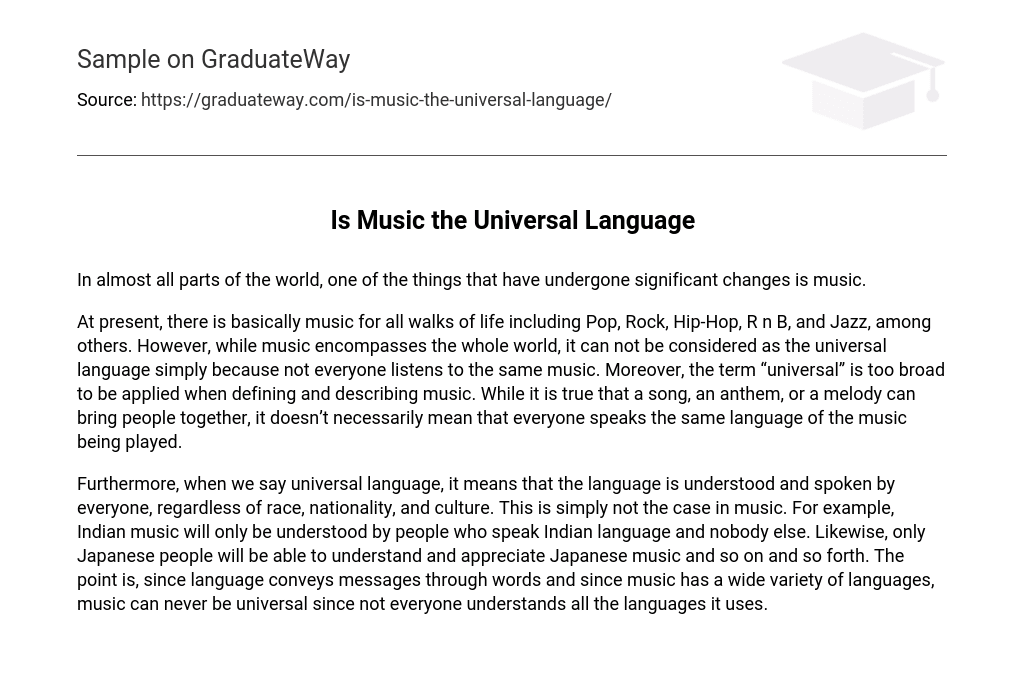In almost all parts of the world, one of the things that have undergone significant changes is music.
At present, there is basically music for all walks of life including Pop, Rock, Hip-Hop, R n B, and Jazz, among others. However, while music encompasses the whole world, it can not be considered as the universal language simply because not everyone listens to the same music. Moreover, the term “universal” is too broad to be applied when defining and describing music. While it is true that a song, an anthem, or a melody can bring people together, it doesn’t necessarily mean that everyone speaks the same language of the music being played.
Furthermore, when we say universal language, it means that the language is understood and spoken by everyone, regardless of race, nationality, and culture. This is simply not the case in music. For example, Indian music will only be understood by people who speak Indian language and nobody else. Likewise, only Japanese people will be able to understand and appreciate Japanese music and so on and so forth. The point is, since language conveys messages through words and since music has a wide variety of languages, music can never be universal since not everyone understands all the languages it uses.





